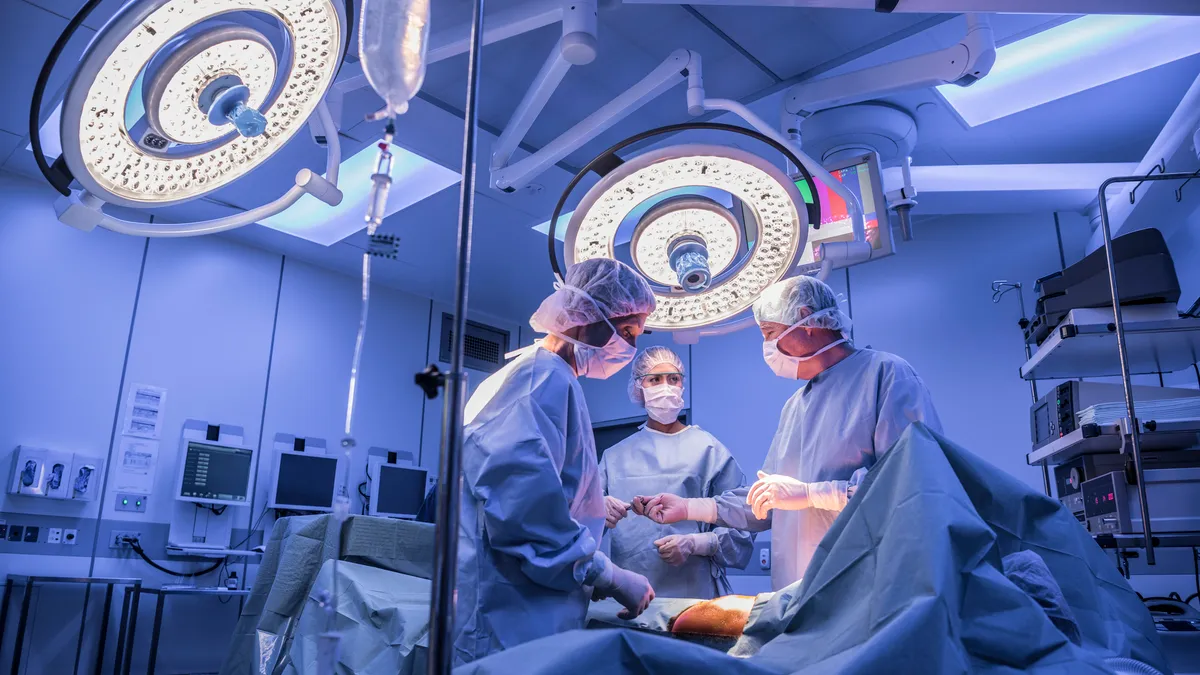Dive Brief:
- Hospital purchasing data suggest Edwards Lifesciences’ U.S. transcatheter aortic valve replacement volume accelerated in the second quarter from the first, Jefferies analysts said in a note to investors Tuesday.
- The analysts created a volume tracker for the heart devices using SKU-level unit, price and revenue data from GlobalData for one-third of U.S. TAVR centers, which Jefferies said accounted for about 40% of total U.S. procedures.
- Based on this analysis, Jefferies’ models estimate TAVR growth bounced back to 17% in the second quarter, compared to the 11% modeled for the first quarter and the approximately 16% average growth rate in 2018.
Dive Insight:
Edwards CEO Mike Mussallem on the company’s most recent earnings call said its TAVR business saw a modest year-over-year decline in market share during the first quarter as the device maker held average selling prices stable globally.
A volume bump for Edwards in the second quarter would be notable given the TAVR pioneer is facing fresh competition from Boston Scientific, which received the go-ahead in April from FDA to start selling its Lotus valve. Boston Scientific executives have said the device will build toward a full launch in 2020. Edwards’ other competition in the U.S. TAVR market is Medtronic’s CoreValve Evolut line.
While the rollout of Boston Scientific’s device will alter the competitive landscape, the TAVR market overall is expected to receive a boost from changes to Medicare coverage criteria and the expected approval of the procedure for patients at a low risk for traditional open heart surgery. CMS last month published final revisions to its national coverage policy that eased volume requirements for hospitals and physicians to begin offering TAVR programs, a move that is expected to expand patient access to the procedure.
TAVR, a minimally invasive alternative to open heart surgery for valve replacement, currently is indicated for high- and intermediate-risk patients. In March, Edwards released study data showing that low surgical risk patients who received TAVR did as well as or better than those who underwent open heart surgery. Medtronic released data at the same time showing its Evolut valve is as safe and effective as open heart surgery in low risk patients. As a result, FDA and CMS are expected to ultimately revise TAVR’s indication and widen reimbursement for the procedure.
Jefferies said its TAVR tracker will aim to provide monthly insights into the expanding market. In 2018, 207 facilities reported their data each month, which covered 25,136 valve units, the analysts said. That's compared to the overall 600 TAVR centers performing about 65,000 procedures in the U.S. market in 2018.
Edwards is expected to report second quarter results July 23.










